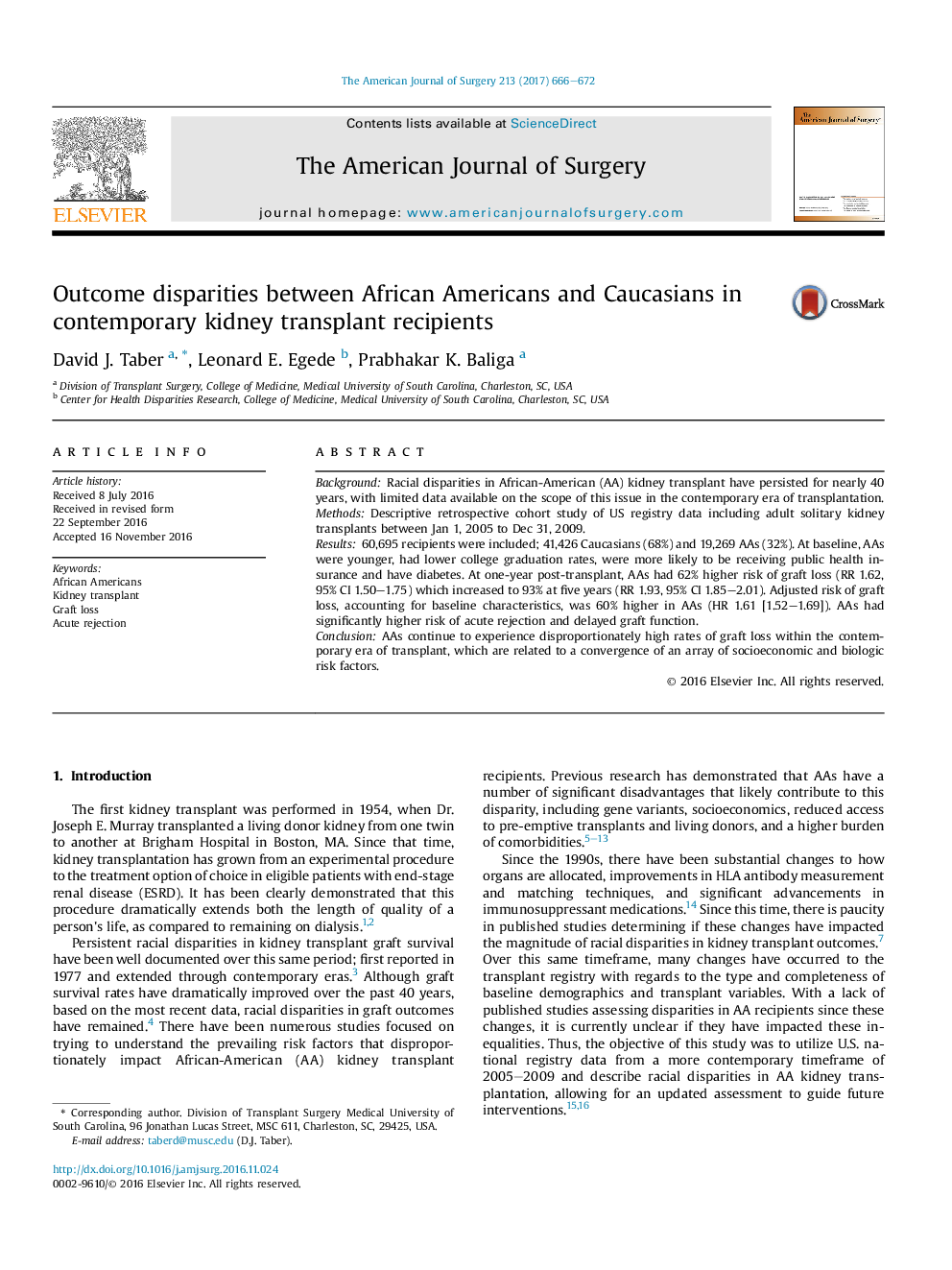| Article ID | Journal | Published Year | Pages | File Type |
|---|---|---|---|---|
| 5731294 | The American Journal of Surgery | 2017 | 7 Pages |
BackgroundRacial disparities in African-American (AA) kidney transplant have persisted for nearly 40 years, with limited data available on the scope of this issue in the contemporary era of transplantation.MethodsDescriptive retrospective cohort study of US registry data including adult solitary kidney transplants between Jan 1, 2005 to Dec 31, 2009.Results60,695 recipients were included; 41,426 Caucasians (68%) and 19,269 AAs (32%). At baseline, AAs were younger, had lower college graduation rates, were more likely to be receiving public health insurance and have diabetes. At one-year post-transplant, AAs had 62% higher risk of graft loss (RR 1.62, 95% CI 1.50-1.75) which increased to 93% at five years (RR 1.93, 95% CI 1.85-2.01). Adjusted risk of graft loss, accounting for baseline characteristics, was 60% higher in AAs (HR 1.61 [1.52-1.69]). AAs had significantly higher risk of acute rejection and delayed graft function.ConclusionAAs continue to experience disproportionately high rates of graft loss within the contemporary era of transplant, which are related to a convergence of an array of socioeconomic and biologic risk factors.
